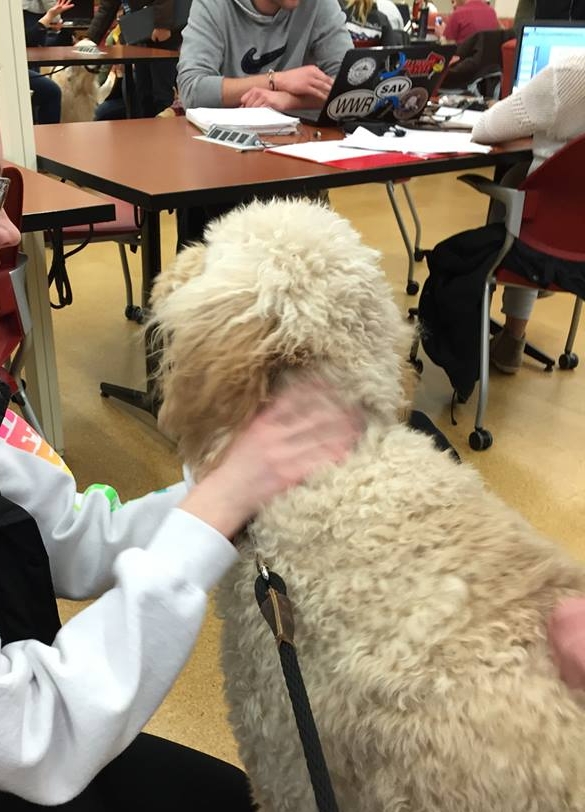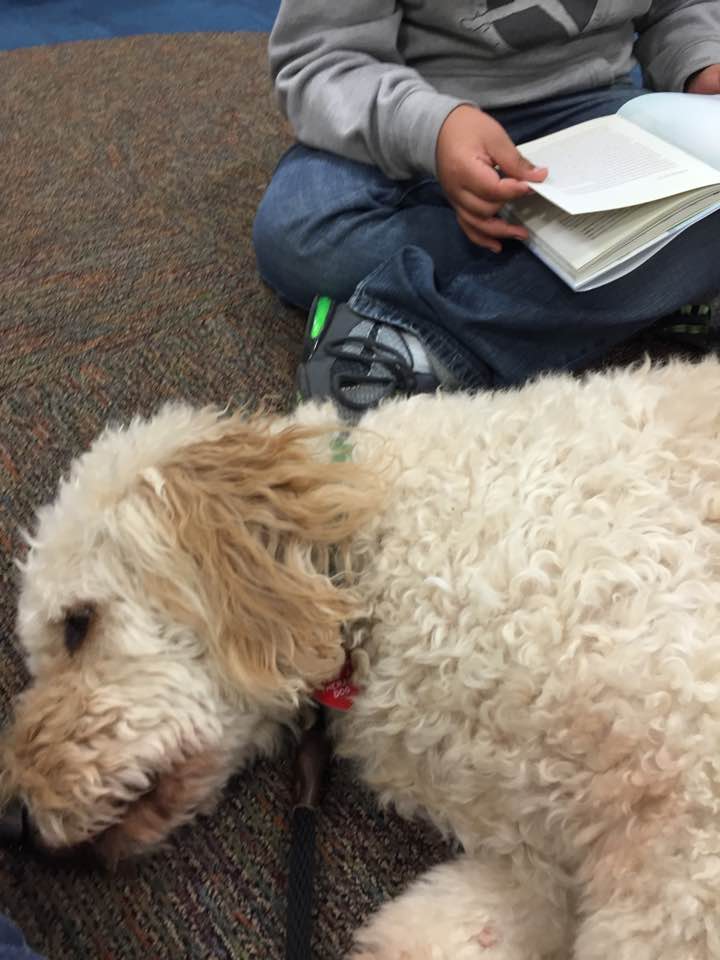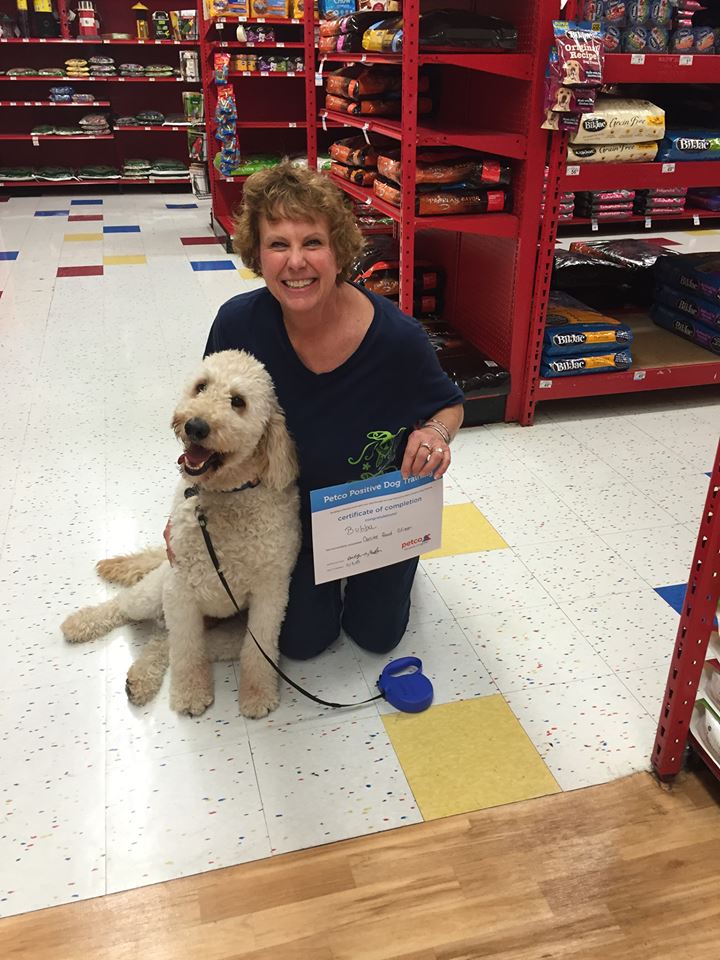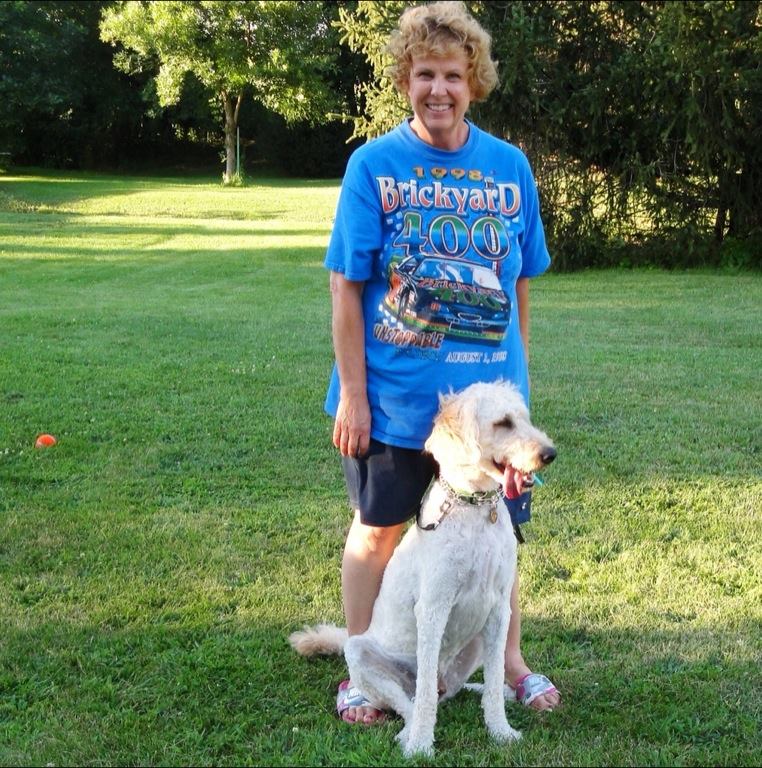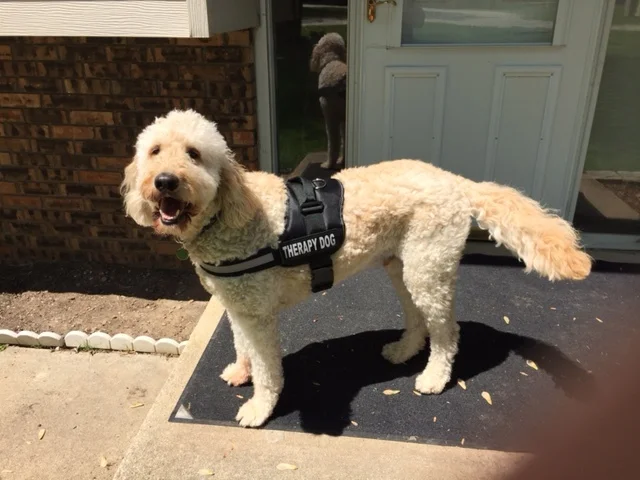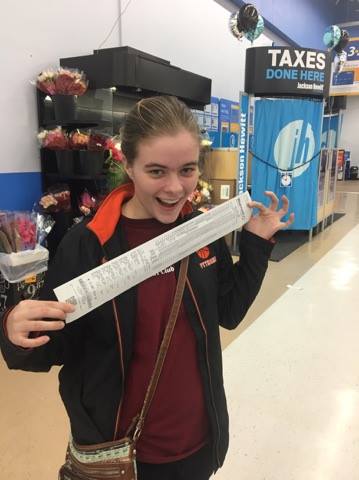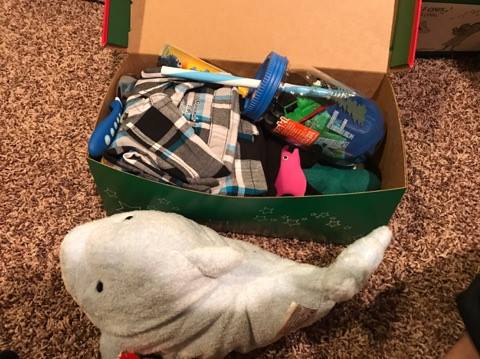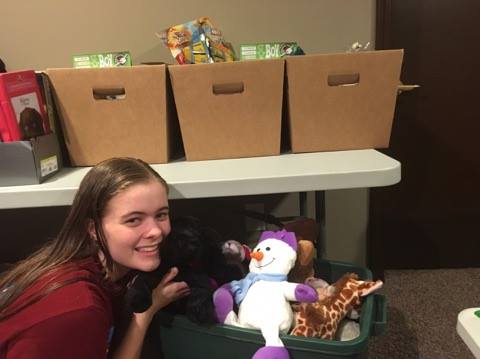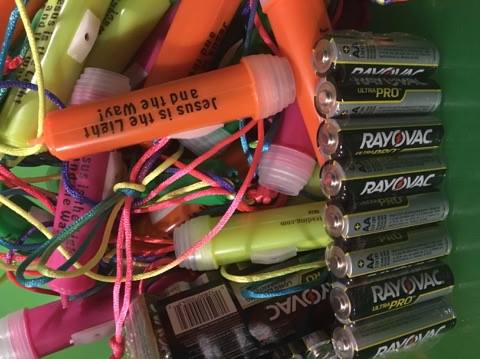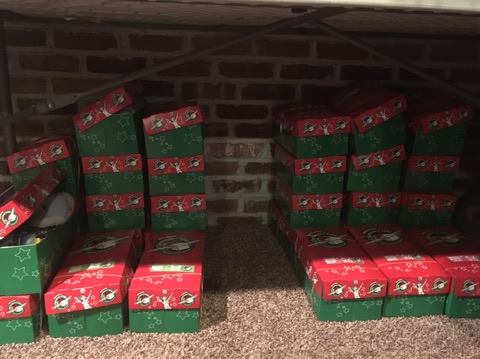Sometimes it’s not a human who most effectively reaches out to those who are hurting. Sometimes that care comes from a four-legged friend.
Carol Denker retired a year and a half ago from Pekin Insurance and was home for about two months before realizing that wasn’t going to work for her. That’s when she and Bubba got to know each other and became family. Bubba is a four year old Golden Doodle (a poodle and golden retriever mix) who Al and Carol adopted when he was two years old. But Carol didn’t just adopt Bubba…..she and Bubba went through extensive obedience training in order for him to become a Certified Therapy Dog.
God has given us so many forms of comfort and healing in this creation and animals are one of those gifts. Carol and Bubba go to nursing homes where the residents just light up when seeing him. Of course many of these residents have had special pets in their lives and having to give them up was another major loss. Bubba helps to fill that void by allowing the residents to love on him all they want.
Carol and Bubba also go to Illinois State University for PAWsitively Stress Free. The students can take study breaks and love on the various therapy dogs who are visiting. Dogs aren’t just for petting, however. At the Bloomington Public Library, children read to Bubba. At Blair House, Bubba goes around the circle of residents to love on people and then folks are able to ask Carol questions about this ministry.
Carol lost her only daughter to a car accident on Christmas Day in 2004 and knows what it’s like to be at the lowest point possible. When I asked her what prompted her to be a part of Hope Therapy Dogs, she said she wanted to give back. “If I can bring a smile to someone who’s having a hard time, that’s what I want to do. It gives me peace.”
Bubba’s neighbor is whoever needs him on that particular day…...what a gift of unconditional love to so many people who just need a furry friend.
Questions or discussion? Click here to comment.
Tomorrow on the Daily Connection: A Light to My Path
About the Authors
Carol Denker is a member of Calvary UMC
Debbie Reese is the Co-Directing Pastor of Calvary UMC




